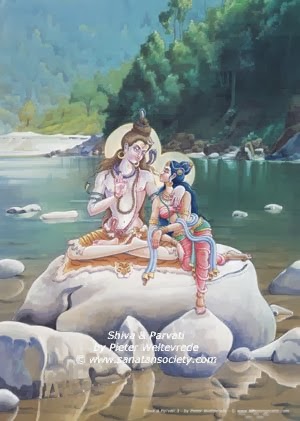Go down to nature and see God there:

"A pilgrimage is a journey seeking our own origin. One should visit forests, oceans and mountains not just temples. Don t waste a life time after booking for a pooja (special worship that are booked years in advance) at a temple see and enjoy the worship of the nature by the various movables and immovables present in nature. Now we have placed God in stones, photographs and in the space below the staircase in our home. Go down to nature and see God there."




